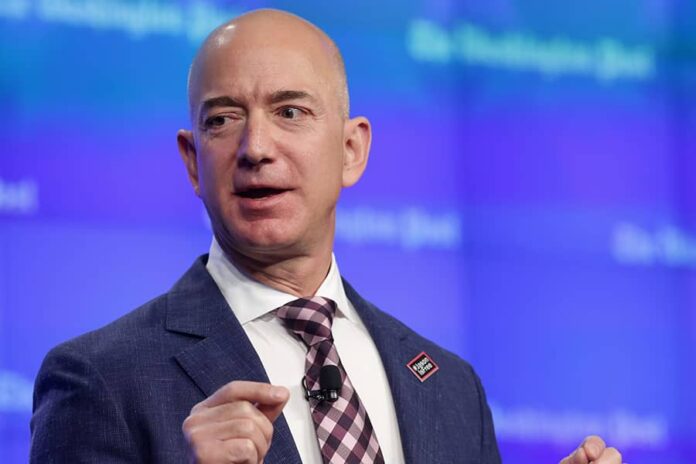Jeff Bezos, the owner of The Washington Post, made his first public remarks following the backlash over his choice not to endorse a candidate in the presidential election. In an unusual op-ed published on Monday evening, he justified his decision.
Bezos, who is also the founder of Amazon, stated that presidential endorsements do not influence election outcomes. He argued that no undecided voters in Pennsylvania would base their choice on an endorsement from any newspaper. Instead, he claimed that such endorsements foster a perception of bias and a lack of independence. He described ending them as a principled and correct decision.
This comment came shortly after three members of The Post’s editorial board resigned in protest against the choice not to support Vice President Kamala Harris, leading to thousands of subscription cancellations from readers. Prominent staff members have voiced their dissatisfaction with how the situation was managed and questioned the timing of this decision.
Critics, including former executive editor Marty Baron, labeled it as cowardly and suggested it was an attempt to placate former President Donald Trump if he were to win back the presidency in November. According to sources familiar with the situation, an endorsement for Harris had already been prepared by The Post’s editorial board before Bezos intervened to stop it.
In hindsight, I regret that we didn’t make the change sooner, further removed from the election and its surrounding emotions, Bezos reflected on the choice not to endorse. This was a failure in planning rather than a deliberate strategy.
Following the announcement by Post publisher Will Lewis on Friday regarding the lack of an endorsement, Trump had a meeting with executives from Blue Origin, a space company founded by Bezos. In his op-ed piece, Bezos refuted claims that he withheld support to gain favor with Trump, stating he was unaware of the meeting in advance.
I want to emphasize that there was no exchange or deal involved here. No campaign or candidate had any knowledge or input regarding this decision; it was made solely within our organization, he explained.
Bezos expressed his frustration upon learning about the meeting between Trump and Blue Origin’s CEO Dave Limp, recognizing it would give critics reasons to portray this as anything but a principled choice. However, he reiterated that he had no prior knowledge of the meeting.
He stressed that there was no link between the meeting and the decision made by the Post, labeling any contrary speculation as untrue.
Nevertheless, Bezos recognized that there appeared to be a conflict of interest, admitting that his roles at Amazon and Blue Origin have complicated matters for the Post. Still, he dismissed the idea that his vast fortune could result in political favoritism, describing his wealth as a shield against coercion and highlighting his non-involvement in the Post’s operations since acquiring it over a decade ago.
While I do not intend to impose my personal interests, I refuse to let this newspaper operate on autopilot and become irrelevant amid a sea of poorly researched podcasts and social media jabs without putting up a fight. It is far too significant, he stated. The stakes are far too high.
However, Bezos’s remarks followed days of intense criticism and unrest within his newspaper, which included public disapproval from renowned Watergate journalists Carl Bernstein and Bob Woodward, as well as an open letter signed by nearly twenty Post columnists.
The columnists expressed that The Washington Post’s choice to refrain from endorsing a candidate in the presidential election is a significant error. They believe it signifies a departure from the core editorial principles that define the newspaper they cherish.
David Hoffman, who recently won the 2024 Pulitzer Prize in Editorial Writing for his investigative series on the new strategies employed by authoritarian regimes to suppress opposition, announced his resignation from the editorial board on Monday. In an interview with CNN, he explained that he felt compelled to speak out against the dangers posed by Trump to the nation.
I can no longer be part of an editorial board that remains silent while we ourselves have succumbed to inaction, he stated. He emphasized that we are confronted with a daunting choice, one that hints at potential autocracy. I refuse to stay quiet about this issue; I don’t want The Post to be muted either, and our decision not to endorse feels like a silence I cannot accept.
Baron, a former editor of the Post who guided the publication to a Pulitzer Prize for its reporting on the January 6 insurrection, expressed skepticism about whether the choice to stop making presidential endorsements was rooted in principle.
If their stance is that readers should independently form their opinions on significant democratic issues, then they shouldn’t publish any editorials at all, Baron remarked in an interview with CNN’s Michael Smerconish. However, he pointed out that this decision to abstain from editorializing occurred just 11 days prior to the election and was only applied in this specific case.

